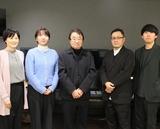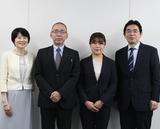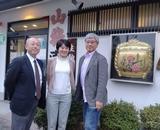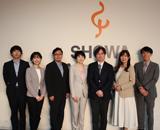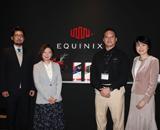September 2024
The TBS Group in Transformation: What Makes Integrated Reports So Important
Creating an "Integrated" Report, Not a "Comprehensive" Report
Ohsato: Tell us what the process was like developing an integrated report. Was there something in particular that you learned through the experience?
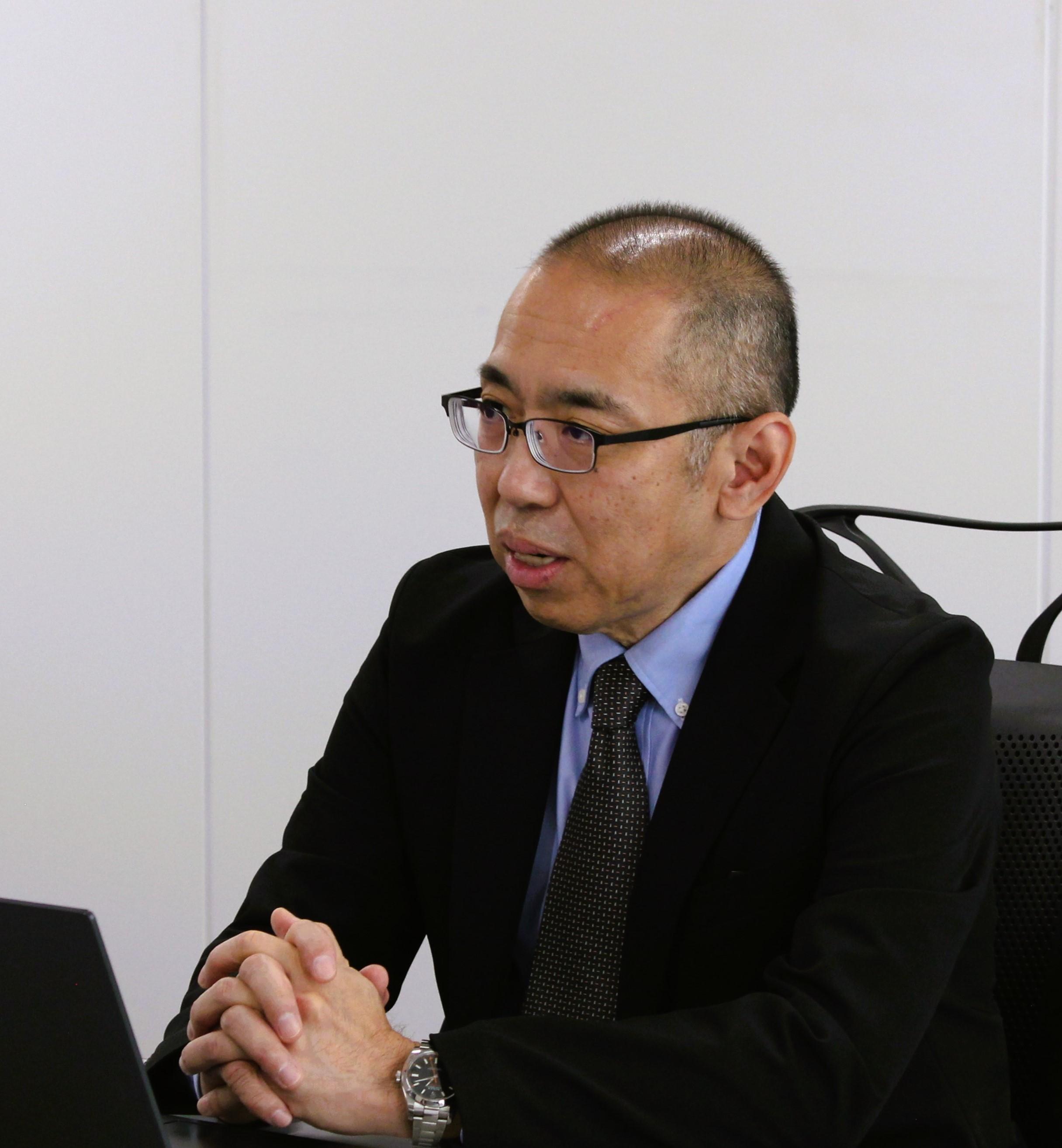
Akasaka: The team for the first fiscal year was made up of around eight people. That grew to 16 in the second year, 24 in the third year and now, in the fourth year, around 30 people are involved in the editorial work. They all serve concurrently in other positions, so they are experts who can bring in information from their various positions in the company or Group. We started by asking ourselves, "What's an integrated report?" and "What makes a good report?" We often also ran into the issue of wanting to report something but not having anything to report. For example, integrated reports need to explain the company's key issues, or materiality. But back when we released the first issue, the TBS Group didn't have any. Being able to find missing areas like this is one of the advantages of putting together an integrated report. This motivated us to properly set up management key issues known as materiality, and after they were discussed by upper management, we were able to include them in the second issue published in 2022.
Once the long-term vision had been set, we needed a strategy to achieve it. Then, based on the strategy, we needed to formulate tactics; and to perceive the tactics, we needed numerical targets (KPI). Integrated reports need to show how systematically a company's business is built, and I believe this led to creating and nurturing "integrated thinking" within the company.
Baba: Did you receive any negative opinions in the company regarding the editorial work?
Akasaka: No, we didn't receive any visible or tangible pushback. On the contrary, we got a lot of positive feedback when the first issue was completed. Management members who read it said it was interesting and that there were a lot of things even they didn't know about. Creating an integrated report was like conducting a self-diagnosis of the company. I felt that it was effective in terms of not only disclosing information to the outside but also creating an opportunity for us to take an objective look at the company from the inside.
That's not all either. I've been told that almost all newly graduated students and mid-career workers hoping to join various TBS Group companies have thoroughly read the integrated reports. I'm glad that they're being used as a tool to understand TBS's competitive superiority, values, future vision and the challenges that must be overcome. I believe people who chose to join the company after carefully reading through the integrated reports will become extremely helpful assets.
During meetings with the editorial team, I often say, "Let's make sure to create an 'integrated' report, not a 'comprehensive' report." In other words, if each editorial member were to act only in the interest of their own departments and simply list all of their appealing aspects, we would end up with a "comprehensive catalog" that wouldn't convey anything. We strive to always remember that integrated reports should state the Group's purpose of existence, values, competitive superiority and issues in an integrated manner and enable readers to go through and understand it as a single "value creation story."
Observation, Analysis and Expression with Translations as Well
Baba: You published an English version of the integrated report from the very first issue. Most companies usually start with a Japanese version and only later provide English translations. What made you decide on creating an English version from the get-go?
Akasaka: Creating an English version was predetermined from the time the first issue was released. Nomura Investor Relations is supporting us as a consultant, and we decided early on in discussions that an English version would be essential if TBS was going to develop a global strategy. Since we are a certified broadcasting holding company with regulatory limitations on the percentage of foreign capital we can receive, some people said an English version wouldn't be very relevant. However, we decided that if we were going to go global in the future, there would be a big benefit to releasing information in English and getting as many international business partners and stakeholders as possible to know about the TBS Group's existence.
Baba: That led you to choose us as a translation company. Could you tell us how Arc Communications' translations were able to meet your wishes?
Akasaka: We began working with Arc Communications from the third issue, Integrated Report 2023. Native English speakers in our company who had read the previous issues' translations were critical of some of the English expressions, and this made us realize it wasn't enough to simply go through the motions of translating the Japanese. We wanted to take it a step further and engage in dialogue and discussion with the translators, so we approached Arc Communications because you make that possible.
Baba: Thank you very much. What did you struggle with in terms of translation?
Akasaka: The English version of our brand promise is, "From each moment, a better tomorrow." When we were formulating the promise, we talked to a native English speaker and decided that a literal translation of the Japanese wouldn't convey the message effectively. So we chose "From each moment" to make sure it could be clearly delivered. But using "each moment" as a keyword on its own in the middle of a sentence would deviate from the original Japanese context, which is "wonderful moments." So, based on an understanding of the TBS brand promise, how could we express that in different words? Simply using a machine translation wouldn't have given us the answer we were looking for. Finding it required both our team and the translation team to work together on observation, analysis and expression.
Ohsato: Arc Communications' mission statement is "Putting Your Business into Words, Conveying Your Business to the World," and the original Japanese statement refers to clearly and globally conveying a business's essence and aspirations. I believe the translation of integrated reports, the epitome of our client's business, essence and aspirations, is an opportunity to carry out our mission statement and demonstrate our true values. Were we able to engage in an effective communication of verbal back-and-forth during the project?
Akasaka: Yes. I knew from the start that your company only offers translations by native English speakers, and when the native and fluent English speakers of our company read the translation, they said there was nothing to criticize. Our integrated reports include many technical terms and original words that we coined at TBS, so their English translations cannot be found in any dictionary. I'm afraid that means we will likely burden your translators with the challenging task of creating new English expressions with us.
Onishi: Not at all, we're actually looking forward to coining new expressions and translations with you. We hope to continue doing so in the future with a full understanding of your company and its aspirations.
Presenting TBS's Transformation to the World in English
Ohsato: Are you looking to do something new in the integrated report this year?
Akasaka: A new medium-term management plan was announced in 2024 and there were also changes to the board, so in Integrated Report 2024, we will have to renew a lot of the pages on overall management. Furthermore, society is showing increased interest in business and human rights issues stemming from cases that occurred in talent agencies. TBS, as a media, has the obligation to honestly report on how it is responding and building systems to address these issues.
Ohsato: What about in terms of the English version?
Akasaka: In 2023, TBS established the Global Business Division. As a content supplier, TBS's business model will no longer be limited to selling broadcasting content overseas. We will also partner with international production companies and studios to work on joint projects. The new medium-term management plan declares that this will be Year 0, in which we start launching a global business by applying the content skills developed in broadcasting on a worldwide scale. We need to clearly publicize, in English, how the company is going to advance onto the international stage, how it plans to succeed and also report on strategies and progress.
Although TBS previously stood for "Tokyo Broadcasting System," it no longer uses those terms after a corporate name change a few years ago. The TBS Group now delivers wonderful "moments" to the world through content, beyond Tokyo and beyond broadcasting. We hope to thoroughly convey our dedication to the transformation mentioned at the beginning to English readers as well. I'm look forward to continuing to work with you going forward, and we ask for your support in various aspects of translation.
Ohsato: We'll do our best to meet your expectations. Thank you very much for your time today.
-------------------------
Need help with a translation or interpreting project? Feel free to contact us here.
Arc Communications
Feature Interview Index

